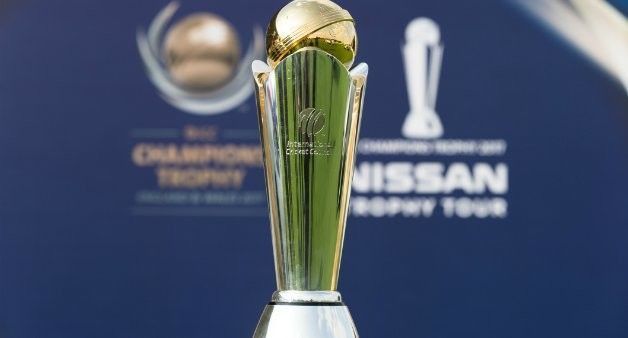
ICC Champions Trophy: Cricket's most misunderstood carnival

In 1998, Jagmohan Dalmiya, considered by many as the pioneer of modern administration, conceptualised an idea, involving the best eight teams in the world and ensure it's a knockout format from the word go.
The event was an experimentation in any way that you look at it. Played in Bangladesh. Winner stays, loser bows out and players wanting to bring their A game to the fore from Game 1.
What transpired at the end of 11 days of action was a series of exciting matches in front of good-sized crowds and South Africa, a team constantly on the rise and looking to dominate the game in the coming years, winning their maiden title.
The ICC had realised it had found a gem and keeping the success the event had in a small nation like Bangladesh in mind, it decided to try the concept in another small country a couple of years later- Kenya.
The tournament followed the same format as in '98 and you could see the best coming out of teams, ensuring fans got to see the top players at their focussed best and firing all cylinders
New Zealand, forever the dark horse in major events, emerged winners in the competition.
What the competition showed was that it had a future to it, provided like the World Cup, it was conducted professionally, keeping several things in mind.
However, what we saw in the succeeding few editions was anything but that.
It can be fairly said that the organizers did not keep the aforementioned aspects in mind, when it awarded the competition to Sri Lanka in September, when rains were lurking around the island.
Expectedly, the rain did arrive, at the worst possible juncture - on the day of the final, and on the reserve day.
A terrific tournament had ended with a whimper as India and Sri Lanka shared the crown.
If one thought the lesson was learnt from that edition, then sadly, it did not turn out to be the case.
The event was staged bang at the start of the English football season in 2004 and the effects were clearly seen. England reached the finals to brighten some hopes among the spectators, but lost in dramatic fashion in near darkness at The Oval.
In 2006, India reluctantly hosted the event and bowed out early and right at the end, the competition courted controversy when Sharad Pawar was allegedly pushed from the dais by the victorious Australian team.
The 2009 edition was held in South Africa, but not before some more drama. Pakistan, scheduled to host the event, were unable to do so after an attack on the Sri Lankan cricketers in Lahore.
The administrators had had enough with the event and it was declared that the 2013 edition would be its last.
Just when everybody thought that end of the tournament was here, there arrived a new dawn.
The 2013 edition of the competition, barring the rain-affected final, was really a throwback to the early editions: Big crowds, flamboyant cricket and a deserved winner.
India, entering into the event as the underdogs(dare I say) went on to put in a flawless performance for the duration of the competition and all of a sudden, a flagging event seemed to have got its share of credit.
Four years on, they were in the final again but were up against a revitalised Pakistan outfit led by a new captain full of hope. They trounced India at The Oval to round off what was again a very enjoyable 17-days of cricket with packed houses greeting the teams.
Now, just for a moment, scroll up and read as to why the event has suffered such a great deal in the years gone by: Factors like weather, reluctance, security.
Not in one of these years was the cricket ever in the spotlight, even when each of those editions produced superb performances.
The India-South Africa semifinal in 2002, the Browne-Bradshaw stand in the final in 2004, Shane Watson shining in the SF and final in 2009 are just a few instances in the event history which indicate that players took the competition seriously.
The Champions Trophy was like those sportspersons whose on-field achievements took the back seat, because off the field they endured so much more.
Unlike the World Cup, the Champions Trophy guaranteed the viewer a contest in every game.
It gave the cricketing world new stars like Yuvraj Singh and Zaheer Khan in 2000, it showed last year that a team like Bangladesh could elevate their game against the best in the world. It made teams stand up and play to their full potential in every single match.
Unlike the World Cup, it ran for only 2-3 weeks which meant it kept you glued to the cricket throughout.
And yet, now it's gone, thanks to the ICC's decision to conduct consecutive World T20 tournaments in 2020 and 2021.
Adios Champions Trophy! It was lovely having you. You were never everybody's cup of tea but you did serve an excellent meal to all those who wished to enjoy you, understood your relevance and remember, if you ever take a rebirth, there will be many who would wait in baited breath for the first ball to be bowled.